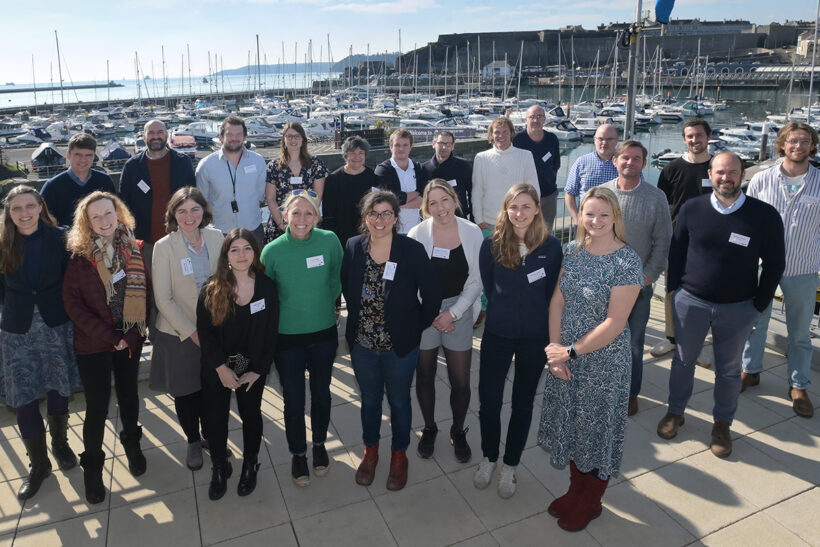A research programme that has tagged around 1,000 fish in the English Channel will continue to monitor data despite the initial two-year study coming to an end.
Since March 2021, the FISH INTEL programme has been tagging five key species in the Channel in order to understand fish movements and identify habitats.
In addition to the extensive tagging programme, which focused on sea bass, pollack, black bream, bluefin tuna and crawfish, almost 200 acoustic responders have been placed along the coasts of England, France and Belgium.
FISH INTEL says that the deployed responders are expected to remain on the seabed for at least five years, and will enable researchers to ‘paint a comprehensive picture of fish movements and the habitats that individual species prefer’ through the continued monitoring of data.
In October last year, the project announced that it had successfully recorded the movements of 68 lobsters, 30 bluefin tuna, 196 sea bass, 64 bream and 10 pollack.
With each individual fish having a unique signal, researchers have already discovered that some sea bass travel from the south coast of Devon to the coasts of Belgium over the space of a number of months. Other species, such as crawfish, stay much closer to home and tend not to stray more than 2km in any direction.
The study is also enabling researchers to see particular sites that different species frequent through the year.
The €4m FISH INTEL project brought together partner organisations from the UK, France and Belgium, and was supported by €2.8m from the European Regional Development Fund via the Interreg France (Channel) England programme.
Dr Emma Sheehan, associate professor of marine ecology at the University of Plymouth, is the project’s principal investigator. “The FISH INTEL project has been an international team effort, bringing together stakeholders from three countries to support the current and future conservation of our fisheries.
“Over the past two years, we have built Europe’s largest multi-species telemetry array, which is allowing us to track fish along everything from estuaries to reefs, shipwrecks and coastal structures. It is also enabling us to see how individual species respond to emerging and expanding industries such as offshore renewable energy and aquaculture,” she said.
“The network we now have in place will mean we can continue to track these species for many years, giving us an unrivalled picture of the habitats they prefer and how we can protect them now and in the future.”
The ultimate aim of the project is to enable authorities in the three countries to implement ecosystem-based fisheries management programmes with the objective of ‘enhancing the condition and water quality in these habitats, as well as enabling activities – such as fishing, civil engineering projects and extract industries – to function in a sustainable way’.
The conclusion of the initial two-year study was marked by a conference held at the University of Plymouth’s Marine Station, attended by many of the project’s key stakeholders.
This story was taken from the latest issue of Fishing News. For more up-to-date and in-depth reports on the UK and Irish commercial fishing sector, subscribe to Fishing News here or buy the latest single issue for just £3.30 here.
Sign up to Fishing News’ FREE e-newsletter here.






